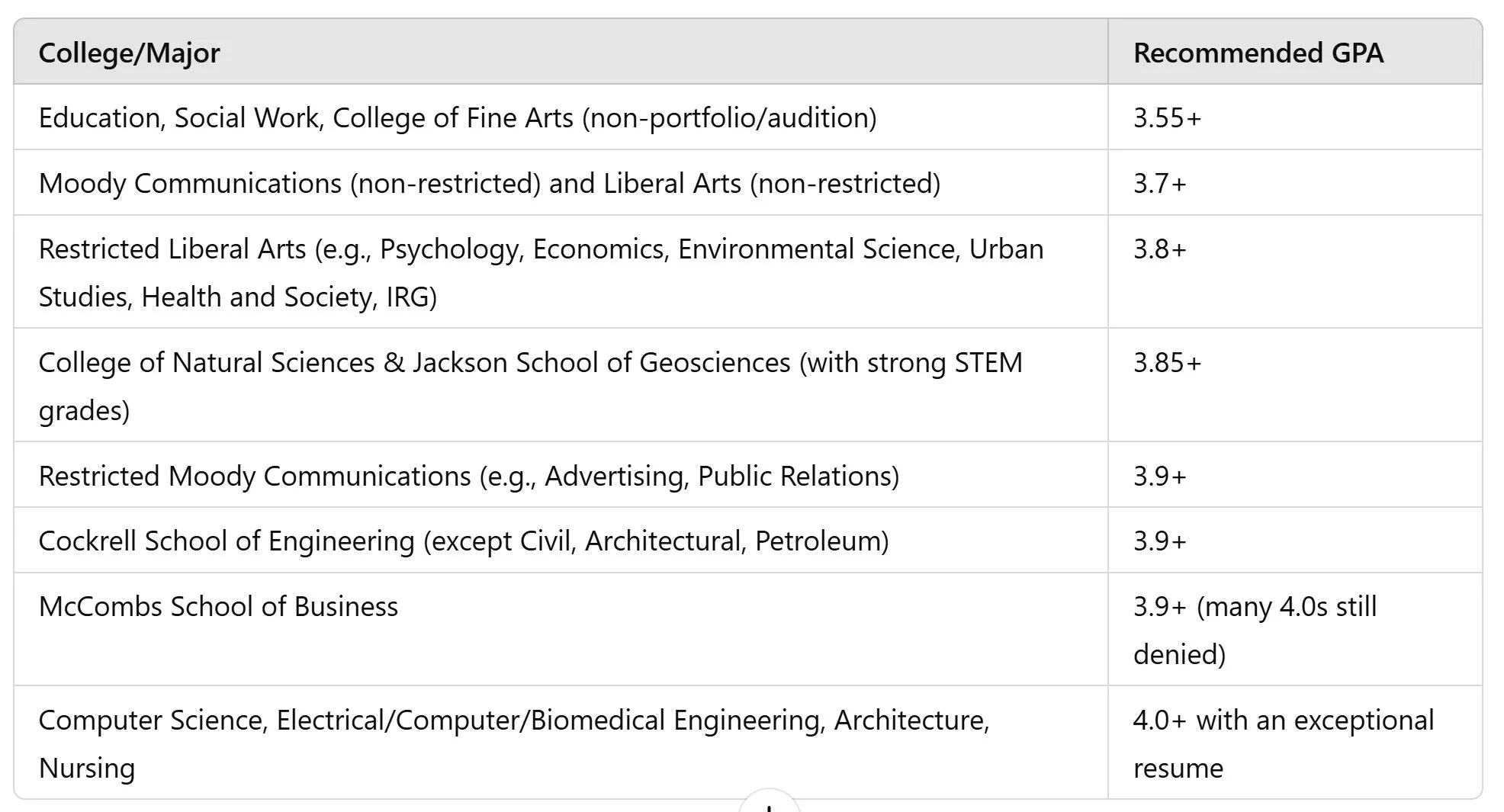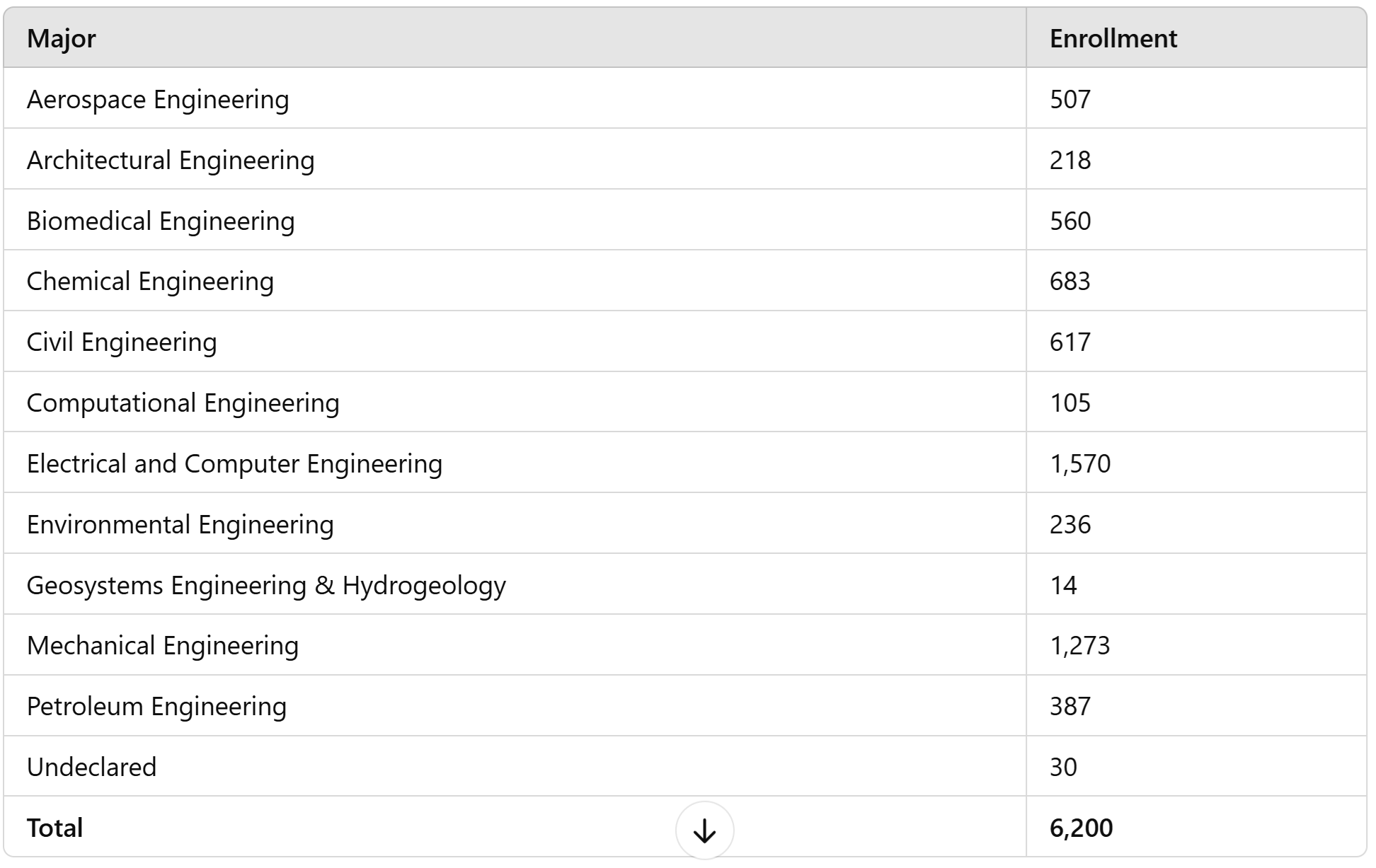External transfer to UT-Austin Computer Science, McCombs Business, Cockrell Engineering
Our friends in rural Netherlands have an award-winning alpaca farm. They’d just received their spring fur shearing.
I cover the three most in-demand UT-Austin majors for transferring: Computer Science, the McCombs School of Business, and the Cockrell School of Engineering. In other posts, I provide essay tips and other transfer information.
The easiest way to reach me is by email kevin@texadmissions.com and to complete this questionnaire for a free email admissions assessment and to discuss pricing and services.
Transfer to UT-Austin Computer Science and CS Admissions Statistics
I need to be upfront that this isn’t going to be an optimistic perspective. It’s going to provide a reality check for many of you. I know that computer science, especially at UT, is one of the most desirable and in-demand programs, especially compared to UT-Dallas or Texas A&M, which is where many UT transfer applicants come from.
My first piece of advice is not to get your hopes up. UT CS is unimaginably competitive to transfer into, so much so that I’ve basically stopped taking on clients for it. I’ve had many 4.0 clients in recent years who have not gained admission. CS has only been this competitive since COVID, because it was as attainable as any other STEM major in the past. 99% of you are not going to get into UT CS as a transfer.
UT admitted only 6 among 1,037 applicants for Fall 2024. The admissions rate was 2% in Fall 2022 and 2023. It wouldn’t surprise me if Fall 2025 had even more applicants for the same number of spaces.
The primary reason UT CS is so competitive to transfer into is that there are few spaces available. Whichever UT students change out of CS or graduate, those spaces tend to go to current UT students who apply for an internal transfer. The internal transfer admissions rate is above 50%.
It’s so rare that you don’t even see verifiable acceptances online anymore, nor do admitted CS transfers message me. The only other majors like this for transferring at UT are Architecture and Nursing, which have always been almost impossible.
So, if your top priority is to get into UT in general, you should strongly consider not selecting computer science as your first choice. Unfortunately, a similar major in Statistics and Data Science doesn’t admit transfer applicants, at least as of filming this in Fall 2025. Although UT technically allows you to select two majors, the second choice is almost never given, especially for STEM majors. On the other hand, graduate admissions for UT CS is relatively normal, so your best option might be to finish your degree at your current school or another university and look at UT for your post-bachelor’s education.
Nevertheless, I know many of you reading this will be determined to try and transfer anyway. I can offer some tips to try and maximize your chances. If you don’t have a 4.0, your odds are basically zero, although it might happen in theory where students with slightly lower grades might get in. You need a 4.0 in your STEM courses at a minimum. Although the College of Natural Sciences doesn’t require any prerequisite courses, you should have substantial coursework in core calculus and lab science classes like physics, chemistry, and biology. You should also have many computer science classes completed as well.
You will need an exceptional STEM-oriented resume with many deep demonstrated experiences in coding, programming, and related computer science themes. This could take many forms like professional jobs, research, internships, extracurriculars, or STEM competitions. Low-level independent projects or the sort of proof-of-concept coding you might do as a beginner won’t cut it. Competitive applicants will be familiar with many programming languages or statistical analysis techniques.
I receive inquiries from maybe five prospective CS transfers each year who have a strong enough resume that I think they’ve got a chance. It’s hard to describe what competitive applicants look like, but I recognize it when I see their profiles. The unfortunate reality is that the dozens of others wanting CS who email me have little to no hope. If you have to ask whether you’re competitive, you’re probably not.
The final advice, of course, is to write your best statement of purpose possible. I dedicate many other posts to essay tips, so I won’t discuss it here. Then it’s a matter of getting extremely lucky. If you end up gaining admission, I’d be interested in hearing from you and seeing your application materials. If UT CS doesn’t work out, I recommend completing your studies elsewhere rather than trying again.
I’m sorry to share a discouraging post, but it’s better to hear about this intense competition from me than to get your hopes high and inevitably be let down. I don’t really take on CS clients anymore, but if you have an exceptional profile, I would be interested in working with you.
Transfer to the McCombs School of Business
McCombs accepts applications only in the fall semester. Everyone applies for Business Undeclared, meaning you cannot declare your intended major, like finance or accounting, on the Common App. You will decide your major after one year at UT.
You must have 24 hours completed or in progress by the March 1 deadline. All applicants must also have credit or grades for microeconomics, macroeconomics, and calculus 1 and 2. You don’t necessarily need grades for these courses, but they must appear on your spring semester transcript.
Taking the prerequisite during the Maymester or summer will not satisfy the prerequisite requirement. It’s essential to double-check with UT’s transfer resources and automated transfer equivalency system that your calculus courses transfer correctly to fulfill the McCombs prerequisites. It can get tricky when taking business calculus rather than the one for science and engineering majors.
Transferring into business is quite competitive but not impossible, like CS, architecture, and nursing.
MCcombs business transfer statistics
The admissions rate for Texas residents is probably around 10%, with the out-of-state admissions rate much lower at around 3%. Competitive applicants will have a 3.9 college GPA or higher. Many 4.0 GPA applicants will get denied, but students with around a 3.8 GPA might occasionally get in. If you’re at a community college, applying to business programs at other universities is essential to give yourself a pathway to continue your studies since nobody is guaranteed transfer admission into McCombs.
Occasionally, the second choice of majors in economics or Moody Communications is given if you are not admitted into McCombs. In theory, Canfield Business Honors (CBHP) allows for transfer admission, but it’s almost impossible to get in. They admit perhaps five external transfers each year. A few of my best McCombs transfer clients who gained regular admission have tried, and none have gained admission.
It's essential to have extensive related business and leadership experience on your resume. It is very difficult to gain admission into McCombs without a strong resume. Note that your expanded resume for transfers and first-time freshmen applicants can and should be longer than a page and as long as necessary. That can include work experience, internships, high school DECA, or college extracurriculars like finance, economics, investing, real estate clubs, etc. All four-year universities, as well as most community colleges, will have these extracurricular opportunities. Developing your contributions, roles, and responsibilities, or events you’ve assisted with can help.
You can also identify how your current experiences might tie into similar UT-Austin opportunities. It’s essential to develop how and why you’ve pursued your varied business and leadership experiences in your statement of purpose while locating specific courses, career advising, case competition, professors, certificates, and other resources that can help you achieve your goals.
Transfer to the Cockrell School of Engineering
Cockrell Engineering accepts applications only in the fall semester. You must have 24 hours completed or in progress by the March 1 deadline. All applicants must also have credit or grades for engineering Physics 1 with lab and the first year of calculus equivalent to UT’s 408 C and D or the three-semester K L and M sequence. Competitive applicants will have more STEM courses with labs beyond the prerequisites. You don’t necessarily need grades for these courses but must appear on your spring semester transcript. Taking the prerequisite during the Maymester or summer will not satisfy the prerequisite requirement.
The first thing to understand about applying to the Cockrell School of Engineering is that it is UT’s only college or school that reviews each applicant based on their specific major. Some majors, like ECE and biomedical engineering, are substantially more competitive than the less in-demand majors like civil, architectural, and petroleum. Mechanical and chemical engineering are moderately competitive, with smaller programs like environmental, computational, and aerospace being more challenging to predict.
Total undergraduate Cockrell enrollment
Competitive applicants for ECE and biomedical must have a 4.0 to have a shot. Even then, almost everyone will get denied. Most of the transfer spaces are for current UT students. Most other majors require a 3.9 overall and a 4.0 STEM GPA to be considered competitive. For the less competitive majors like civil, architectural, and petroleum, students with 3.5s and lower occasionally gain admission. These three majors are also sometimes given as a second choice major, so the optimal approach is to select one of them for your second choice. It’s also very hard to change your engineering major at UT, so I don’t recommend enrolling at UT unless you gain admission to a major you have a reasonable expectation that you will enjoy and want to earn your degree in.
If you’re at a community college, it’s essential to apply to engineering programs at other universities to give yourself a pathway to continue your studies since nobody is guaranteed transfer admission into Cockrell Engineering, even for the less in-demand majors.
It's essential to have extensive related STEM experience on your resume for the most competitive engineering majors. It is very difficult to gain admission into the most desirable Cockrell programs without a strong STEM resume. Note that your expanded resume for transfers and first-time freshmen applicants can and should be longer than a page and as long as necessary. That can include work experience, internships, deep commitments in high school, or college STEM extracurriculars. All four-year universities, as well as most community colleges, will have these extracurricular opportunities. Developing your contributions, roles, and responsibilities, or events you’ve assisted with can help. You can also discuss substantive independent projects or those outside of school or clubs.
You can also identify how your current experiences might tie into similar UT-Austin opportunities. It’s essential to develop how and why you’ve pursued your varied business and leadership experiences in your statement of purpose while locating specific courses, career advising, research opportunities, upper division electives or pathways, and professors that can help you achieve your goals. Identifying potential dream jobs or ambitions for graduate school in a concluding sentence can also help suggest your long-term goals.




